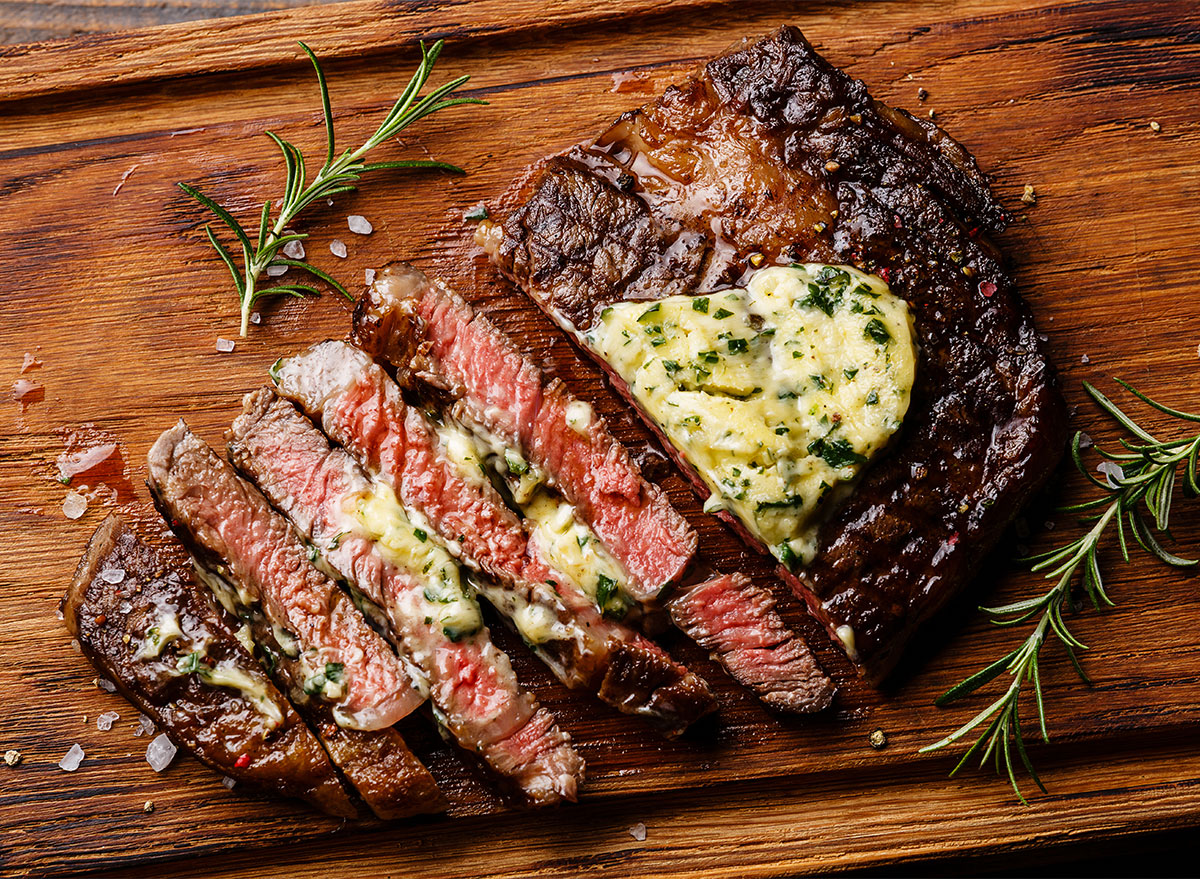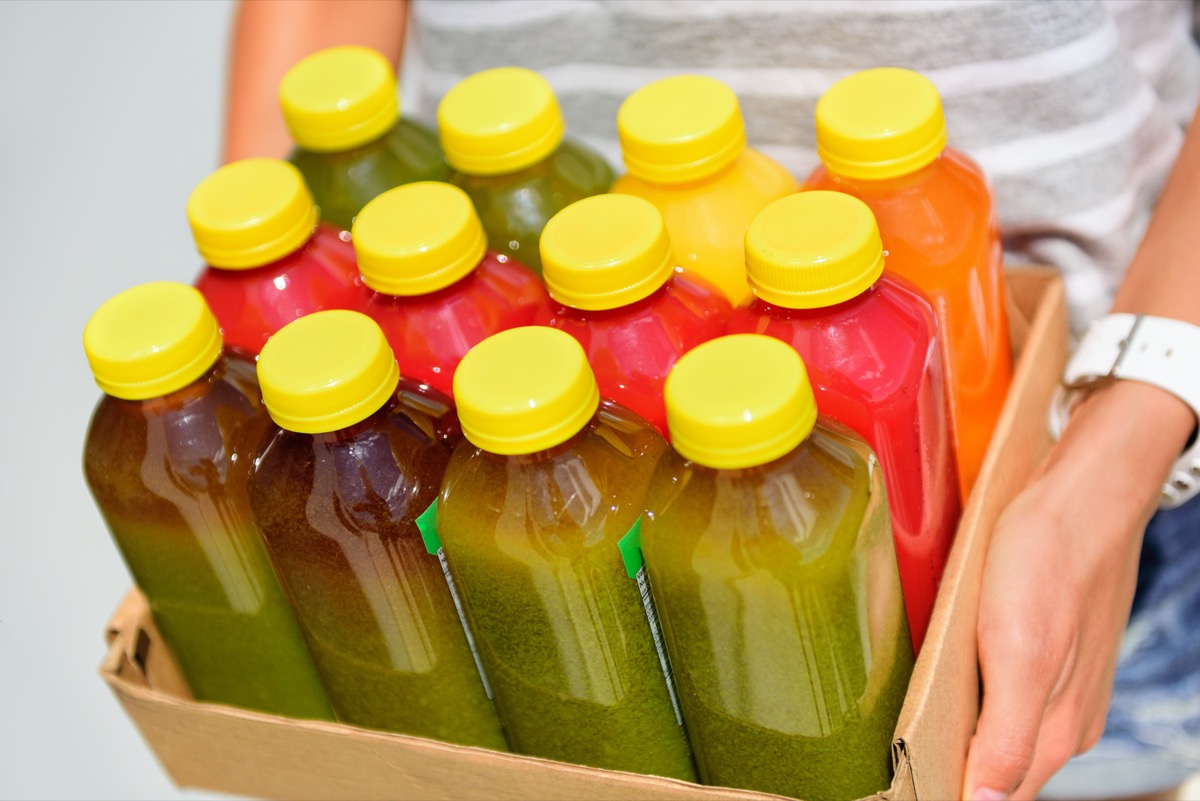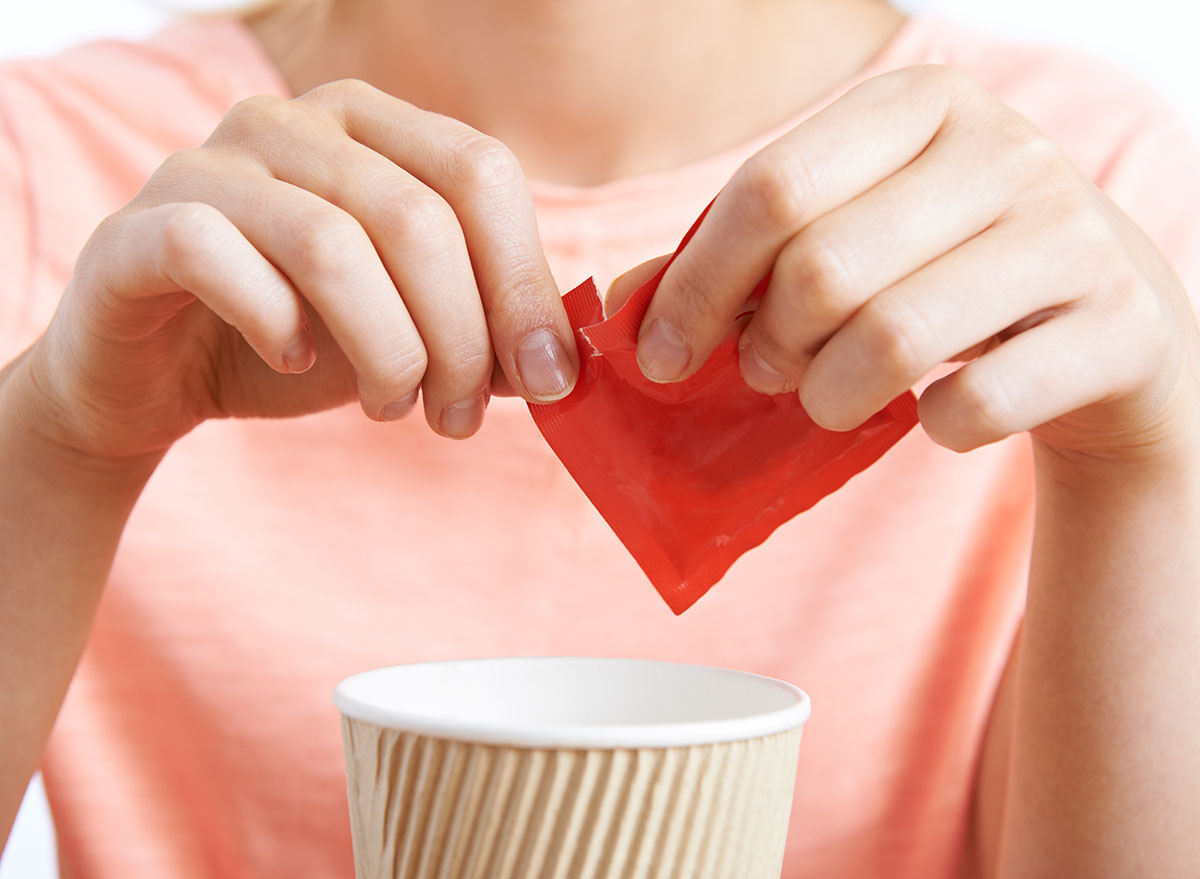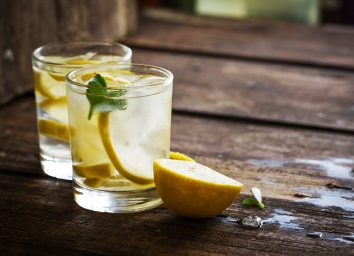Popular Diets That May Cause Lasting Damage to Your Liver, According to Science

Whether you follow a low-carb way of eating or stick to a vegan diet, there are likely some obvious examples of how your eating habits affect your body, from your energy level to your weight to your digestion. However, there’s one surprising organ that may be suffering due to your dietary choices—and you might not realize anything’s amiss until something’s seriously wrong. Studies say a number of popular diets can cause liver damage over time, so read on to find out if your food choices could be putting this vital organ at risk. And if you want to improve your health, start with these 15 Underrated Weight Loss Tips That Actually Work instead.
Keto

While many keto devotees are fans of the rapid weight loss some people experience on the plan, if you’re relying on a meat-heavy version of the diet, you could be putting your liver in harm’s way.
A 2020 study of 50,045 adults between 40 and 75 years of age published in Current Developments in Nutrition found that red meat consumption increased individuals’ risk of developing non-alcoholic fatty liver disease (NAFLD). A study published in the journal Gut found similar results: among 3,882 study participants, animal protein consumption was significantly associated with NAFLD among overweight study subjects.
For more incentive to skip that steak, check out the One Major Side Effect of Eating Red Meat, Study Says.
Juicing

Juicing may seem like a healthy way to lose a few pounds, but attempting to sip your way slim may do more harm than good. Most fruit-based juices are high in fructose, which has been linked to the development of NAFLD.
A 2018 article published in the Journal of Hepatology found that consumption of fructose may be a risk factor for NAFLD, although fruit was identified as a less likely culprit than soft drinks to cause the condition. Cutting your fructose consumption may have beneficial effects on liver health, though: a 2017 study published in Gastroenterology found that, among a small study population of children between the ages of 9 and 18, restriction of fructose over a period of just nine days reduced liver fat.
Need more incentive to ditch those drinks? Just check out these 5 Reasons You Should Stop Drinking Juice, According to Dietitians.
The mono diet

The mono diet, a type of eating plan in which dieters eat only one type of food in order to lose weight, is not only hard to follow in the long-term, but may cause liver damage.
If you’re consistently eating high-sugar foods or red meat as part of your mono diet, you may be at greater risk of developing NAFLD. Similarly, if your mono diet relies on sodium-rich foods, you could be risking your liver damage—a 2021 study published in the journal Public Health Nutrition found that, among 11,022 adult participants, those with the highest sodium intakes in their diet had significantly higher rates of NAFLD than those who consumed less sodium.
Get even more healthy tips straight to your inbox by signing up for our newsletter!
Sugar-free diets

Though ditching refined sugar from your diet may have a wide range of benefits, from reducing your risk of type 2 diabetes to helping you slim down, if you’re replacing that sugar with certain artificial substitutes, you may experience liver damage over time.
According to a 2008 study published in the Canadian Journal of Gastroenterology, aspartame-sweetened soda consumption was linked to the buildup of fat in the livers of study subjects without other known risk factors for NAFLD.
However, not all artificial sweeteners are created equal when it comes to your liver health. According to a 2020 review of research published in Expert Review of Endocrinology & Metabolism, researchers from University Hospitals Leicester and the National and Kapodistrian University of Athens found that “Natural sweeteners have not been associated directly with NAFLD, and on the contrary, some, such as stevia, and trehalose, may have a protective effect.”
Want to know how your favorite sweetener stacks up? Check out Every Popular Added Sweetener—Ranked!








